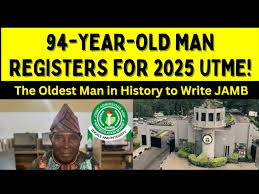Imagine a future where every child, regardless of background, has access to a world-class education—one that nurtures creativity, critical thinking, and technical expertise from an early age.
Picture classrooms equipped with digital whiteboards, students engaging with Artificial Intelligence and Robotics, and an education system seamlessly integrating cutting-edge technology with practical skills. This is not a distant dream but a tangible reality taking shape in Enugu State, Nigeria.
Nigeria’s education sector has faced persistent challenges for decades—insufficient funding, outdated curricula, and a disconnection from modern technological advancements. These limitations have stifled progress, leaving generations of students ill-equipped for the rapidly evolving global economy. However, a radical transformation is underway in Enugu, led by Governor Peter Mbah’s visionary leadership. The goal is clear: to position Enugu as Africa’s leading hub for human capabilities, producing a generation of thinkers, innovators, and problem-solvers who will drive economic and technological progress.
This transformation is anchored on three strategic pillars—experiential and future-oriented learning, inclusive and equitable education, and strengthening technical, vocational, and higher education. By reimagining the role of education and making unprecedented investments in learning infrastructure and curriculum development, Enugu is pioneering a model that other states and nations can emulate. In this new era, education is not just about acquiring knowledge but about building competencies that empower students to thrive in a dynamic world.
Traditional Nigerian education has relied heavily on rote memorisation, leaving students ill-prepared for the demands of an evolving world. Enugu State is shifting towards Experiential Learning, where students gain knowledge through practical applications rather than passive listening.
To achieve this, the state will integrate cutting-edge technologies into the curriculum: Interactive Digital Whiteboards and Tablets to create engaging, interactive lessons; Artificial Intelligence (AI) and robotics to teach problem-solving and innovation; Virtual and Augmented Reality (VR/AR) to provide immersive learning experiences; and the Internet of Things (IoT) to introduce students to smart technologies.
A 2023 report by the World Economic Forum states that “65% of children entering primary school today will work in job roles that do not yet exist.” Enugu’s forward-thinking approach ensures that its students will not only be ready for these jobs but will pioneer them.
STEM (Science, Technology, Engineering, and Mathematics) education is at the heart of this reform, ensuring that students are not just consumers of technology but creators, innovators, and future leaders in the global digital economy. In the words of Governor Mbah, “Our children will not just use technology; they will build it, shape it, and lead the world with it.” A key component of this transformation is ensuring that every child in Enugu State has access to quality education, regardless of socio-economic background.
The government addresses this challenge by constructing 260 Smart Green Schools, one in each ward, to ensure widespread access to modern education facilities. The Smart Green Schools project is a radical rethinking of primary and secondary education in Enugu. Each school will feature state-of-the-art facilities, including interactive classrooms, digital labs, AI-driven learning tools, and a curriculum designed for the 21st century, focusing on skills such as critical thinking, creativity, and technological proficiency. The pilot school in Owo, Nkanu East LGA, is already operational, with many more under construction. The government has committed to completing all 260 schools by September 2025.
The government is introducing Early Childhood Education (ECE), which focuses on social skills, cognitive development, and problem-solving from as early as three years old, provides special accommodations for children with disabilities, and ensures inclusivity. This initiative will ensure that every child receives a world-class education from age three onwards, preparing them for success in an increasingly technology-driven world. According to a McKinsey report on education, “Students who engage in digital and experiential learning from an early age show a 45% improvement in problem-solving skills compared to traditional methods.”
These measures ensure that education in Enugu is not just a privilege but a right, setting a precedent for other states. A 2022 UNICEF report states, “Nigeria has one of the highest numbers of out-of-school children in the world, with over 10.5 million not receiving formal education.” Enugu’s investment aims to change this narrative, ensuring no child is left behind, especially in Enugu.
A significant flaw in Nigeria’s education system is that it is disconnected from industry needs. Many graduates are unemployed due to a mismatch between their skills and market demands. Enugu’s model seeks to bridge this gap by prioritising Science, Technical, and Vocational Education (STVE). Many students will transition to STVE institutions after graduation from Smart Green Schools. Eight new Technical and Vocational Schools (one per Federal Constituency) are under construction, ensuring that students interested in practical skills training have access to top-tier facilities. The Government Technical College (GTC), Enugu, is being revitalised as the flagship institution for technical education.
Other key initiatives include building eight specialised STVE schools, one per Federal Constituency, offering training in fields such as Industrial Technology & Engineering, Software Development & Information Technology, Building & Fabrication Engineering, and Industrial Agriculture. Upgrading tertiary institutions to incorporate experiential learning methodologies, including Enugu State University of Science and Technology (ESUT) and the Institute of Management and Technology (IMT). Ensuring ESUT’s programmes are accredited, with 97% of courses now officially recognised, thanks to increased government investment. Clearing salary arrears and releasing long-stalled promotions, motivating educators to deliver higher-quality instruction.
These technical institutions will not just train students but forge direct partnerships with industries, ensuring that graduates are ready to enter the workforce immediately upon completing their programmes. By focusing on skills that are in high demand, Enugu is reducing unemployment and creating a pipeline of skilled workers who can compete globally.
According to a recent National Bureau of Statistics study, Nigeria’s youth unemployment rate stood at 42.5% in 2023. Enugu’s focus on vocational training is expected to significantly reduce this figure, as skilled graduates will be job-ready upon completion of their programmes. Through initiatives such as industrial attachments and collaborative research with industry players, students will graduate with practical experience and marketable skills, significantly enhancing their employability.
Perhaps the most groundbreaking aspect of this transformation is the unparalleled financial commitment by the Enugu State Government. In 2024, the administration allocated N134.9 billion to education, 33% of the total budget, surpassing the UNESCO benchmark of 15-20%. This trend continued in 2025, with education receiving N320.6 billion (33.2% of the budget), making it one of the highest investments in education in Africa’s recent history.
This financial commitment extends beyond mere infrastructure; it ensures teachers receive competitive salaries, training, and incentives to deliver world-class education. Additionally, bursaries and scholarships are provided to high-achieving students and those from underprivileged backgrounds, removing financial barriers to education.
The significance of this is obvious. Education funding in Nigeria has been lip service for decades, with insufficient allocations hampering development. By making education the top budgetary priority, Governor Mbah is proving that transformational change is not just a vision but a well-funded reality. Enugu is fostering a generation of self-reliant, employable graduates capable of driving industrial and technological advancement by prioritising practical skills development.
This commitment has not gone unnoticed. The Vanguard Newspaper’s editorial board, in its December 21, 2023 edition, acknowledged Enugu’s revolutionary approach in an article titled “Enugu’s Laudable Education Budget and Abia’s Recurrent Expenditure.” This recognition highlights the national and continental significance of the state’s educational reforms.
Enugu’s Disruptive Education Model is more than just a policy—it is a revolution in the making. If these ambitious initiatives are sustained and expanded, the state will serve as a benchmark for educational transformation across the continent. With an unwavering focus on experiential learning, inclusive access, and technical education, Enugu sets a new standard for what African education can and should be. The world is watching, and Enugu is leading the way.
John Bankole, lives in Lagos and can be reached at penhallconsults@gmail.com



